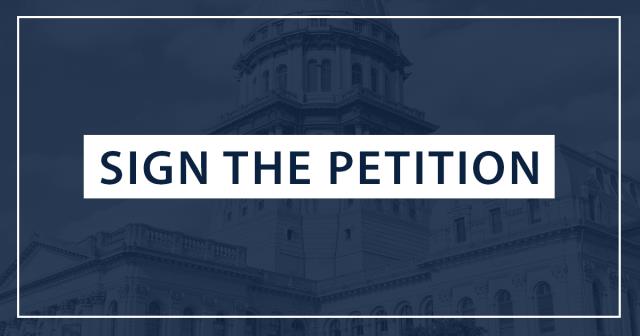|
Mitigations placed on Region 5
On October 19, Illinois Governor J.B. Pritzker and the Illinois Department of Public Health placed new regional restrictions on Region 5 beginning Thursday, October 22.
According to a news release from Illinois Department of Public Health, the mitigation measures include:
Bars
- No indoor service
- All outside bar service closes at 11 p.m.
- All bar patrons should be seated at tables outside
- No ordering, seating, or congregating at bar (bar stools should be removed)
- Tables should be 6 feet apart
- No standing or congregating indoors or outdoors while waiting for a table or exiting
- No dancing or standing indoors
- Reservations required for each party
- No seating of multiple parties at one table
Restaurants
- No indoor dining or bar service
- All outdoor dining closes at 11 p.m.
- Outside dining tables should be 6 feet apart
- No standing or congregating indoors or outdoors while waiting for a table or exiting
- Reservations required for each party
- No seating of multiple parties at one table
Meetings, social events, gatherings
- Limit to lesser of 25 guests or 25% of overall room capacity
- No party buses
- Gaming and casinos close at 11 p.m., are limited to 25% capacity, and follow mitigations for bars and restaurants, if applicable
IDPH and the Pritzker Administration placed region 5 under harsher restrictions after the area witnessed a 7-day rolling average test positivity rate of 8 percent for three straight days.
The Governor had stated that restrictions would remain in place until the positivity rate dropped below 6.5% for three consecutive days.
Region 5 consists of Alexander, Bond, Clay, Clinton, Crawford, Edwards, Fayette, Franklin, Gallatin, Hamilton, Hardin, Jackson, Jasper, Jefferson, Johnson, Lawrence, Madison, Marion, Massac, Monroe, Perry, Pope, Pulaski, Randolph, Richland, St Clair, Saline, Union, Wabash, Washington, Wayne, White, Williamson counties.

Vote by Mail
With the November election just around the corner, voting by mail remains an option for voters to cast their ballot prior to Election Day.
 Registered voters can request a vote by mail ballot through the mail or in-person. The deadline to request a ballot by mail is October 29. Meanwhile, the deadline for all in-person early voting requests must be made by November 2. Registered voters can request a vote by mail ballot through the mail or in-person. The deadline to request a ballot by mail is October 29. Meanwhile, the deadline for all in-person early voting requests must be made by November 2.
A vote by mail application must include:
- Name
- Home Address
- Address where the voter would like application to be mailed
- Party Affiliation for Primary Election
- Signature
- Any vote by mail ballot must be placed into the certification envelope provided
- The certification on the envelope must be completed, signed, and the envelope sealed. Mailed ballots must be postmarked no later than Election Day, and must be received within 14 days of the election. All vote by mail ballots are processed centrally.
If a voter has requested a vote by mail ballot but decides to vote at a polling place on Election Day they must submit their vote by mail ballot, or a portion of the ballot, for cancellation when they arrive.
If a voter requested but has not received their vote by mail ballot or their ballot was not received by the election authority, they will be asked to fill out an affidavit to that fact.
Another option for voters is to vote early. Registered voters may cast a ballot prior to Election Day without having to provide a reason for wanting to vote early. This ballot is cast by in-person at the office of the election authority or at an Early Voting Center.

Small Business Grants Still Available
Millions of dollars are still available through the Business Interruption Grant (BIG) Program for businesses who have been financially impacted by COVID-19 closures.
 The Business Interruption Grant (BIG) program is a $636 million program that provides economic relief for small businesses hit hardest by COVID-19. Funding may be used to help businesses with working capital expenses, including payroll costs, rent, utilities, and other operational costs. The Business Interruption Grant (BIG) program is a $636 million program that provides economic relief for small businesses hit hardest by COVID-19. Funding may be used to help businesses with working capital expenses, including payroll costs, rent, utilities, and other operational costs.
The first wave of grant funding gave priority to small businesses that were heavily restricted or completely shut down during the pandemic and are located in DIAs. In that wave, more than 2,800 business received funding relief.
Now, DCEO is accepting applications to disperse over $200 million in remaining funds for the grant program. For this round, nearly all businesses and non-profits with an annual revenue under $20 million are eligible to apply.
Particular consideration will be given to businesses downstate, in disproportionately impacted areas (DIAs), and for heavily impacted industry and regions – representing businesses that have been unable to reopen or operating at a severely diminished capacity since the spring.
For all applicants, priority will be given to businesses that:
- Did not receive PPP or other forms of emergency aid from the CARES Act or the State.
- Are located in DIAs.
- Are subject to mitigation measures implemented by the state or local governments due to COVID resurgence.
- Have less than $5 million in annual revenue.
- Experienced revenue losses since March exceeding 50%.
- Are independently owned retail, tourism or hospitality-related, and other hard-hit industries.
More information on the second round of funding can be found here.

Recent indictment underscore the need for anti-corruption reform this veto session
 In a time when several Illinois democrat legislators are making headlines for corruption charges, Illinois Senate Republicans have introduced legislation to hold elected officials accountable. In a time when several Illinois democrat legislators are making headlines for corruption charges, Illinois Senate Republicans have introduced legislation to hold elected officials accountable.
Measures include:
• Prohibiting legislators from lobbying other branches or units of government for compensation.
• Implement a revolving door prohibition that would make legislators wait one year, or until the end of their elected term to register as a lobbyist.
• Prohibiting the use of campaign funds once a legislator leaves office if lobbying or appointed to a position confirmed by the Senate.
• Updating the Statement of Economic Interest to require enhanced disclosure of potential conflicts of interest.
Ahead of veto session, Senate Republicans urge democrats to take action on these measures. If you agree, sign my petition calling on anti-corruption reform here.
|